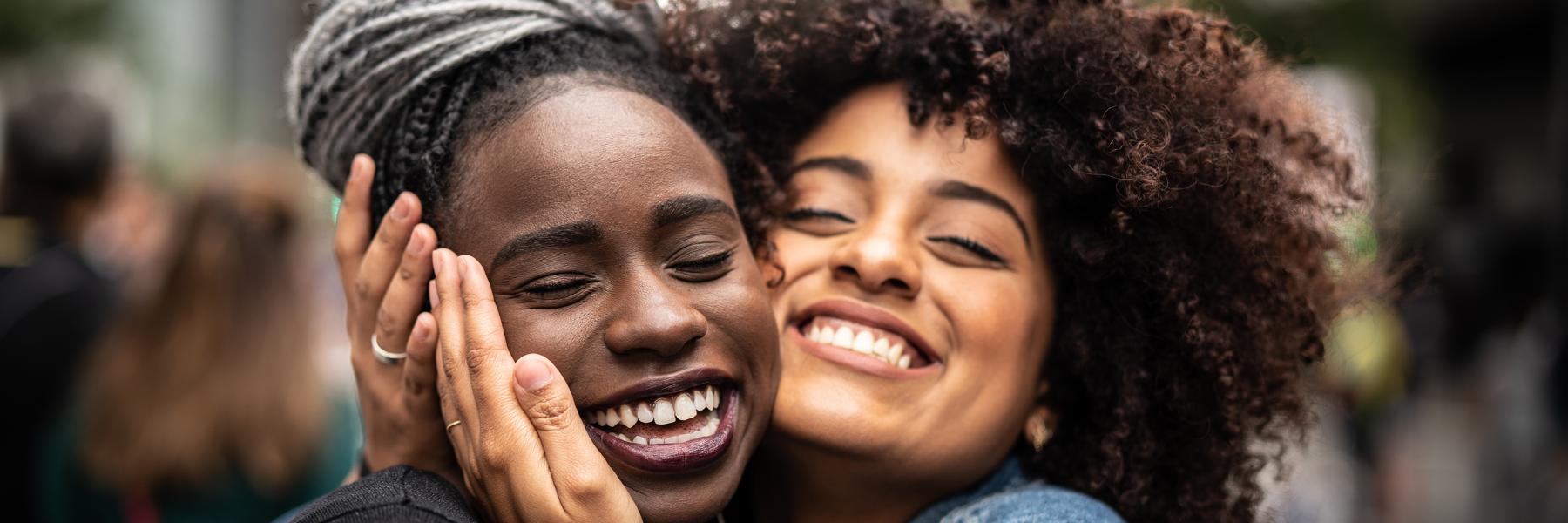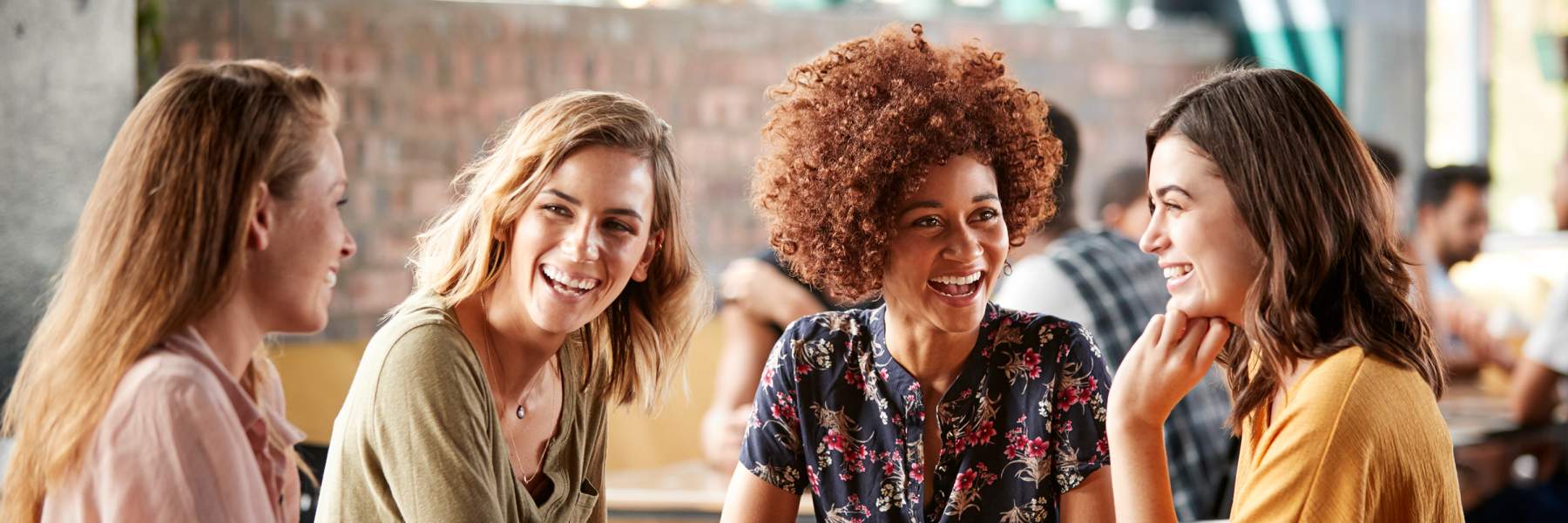When big changes happen in our lives, it’s normal to want to talk to our friends about them. But opening up about an endo diagnosis or your painful or heavy periods can be daunting, especially if you’re not used to talking about your health or you’re worried about how your friends will respond.
Benefits of opening up
This may seem counter-intuitive, but talking about your problems can often help people feel less burdened by their own problems. Conversations about things that we normally keep hidden can actually be liberating, as Syl Freedman, founder of EndoActive, discovered when she talked to some boys at the pub about her endo. Having issues is normal – we don’t need to be social media-perfect all of the time. Voicing your experiences may empower your friends to seek help for their own period pain, pelvic pain or heavy bleeding, or even symptoms relating to other conditions.

Telling your friends – decide who, what and how
The first thing to think about is who you want to talk to. Some people may want to keep knowledge of their symptoms to their family and one or two close friends, while others are happy for their entire circle to know.
Next think about what information you want to provide. Understand as much about endo as you can and think about what you want to tell people ahead of time. You could even jot down some notes or write a letter than you may or may not actually send. If you’re struggling to communicate, you can find online resources such as free videos, podcasts and this factsheet to share with your friends.
How you communicate is up to you, but here are some thoughts:
- Some people prefer giving out a little bit of information at a time while others prefer a full heart-to-heart. It’s up to you.
- Help your friends to identify with you via their own experiences – maybe they live with a chronic condition or have experienced bad periods too.
- Consider breaking the news at a time when you feel physically and emotionally ready to handle it.
- Think ahead about the types of questions your friends may ask, like how endo affects you, or practical ways they can support you.

What if they’re not receptive?
Although it can be hard to accept, some people may not be ready or willing to understand about your endo. Any chronic condition can test friendships.
Even if your friends don’t understand, they can still be your friends. Maybe they haven’t started their period yet so don’t understand about heavy bleeding. Maybe they are uncomfortable talking about human bodies and need time to adjust. Or maybe they’re dealing with their own problems so haven’t got space at the moment to cope with yours as well.

Where else to go for support
A sibling, parent, family friend, teacher or school counsellor may be able to give you additional support. You can also reach out to the Australian Endometriosis Associations. Many of these associations have online or in-person support groups which can help you feel less alone and to learn from others’ experiences. If you need one-on-one support you could join QENDO’s Mentor Program or call their support line. QENDO also has a LGBTQIA+ support community on Facebook, QENDO & Co. where you can connect with others.
 Skip to main content
Skip to main content